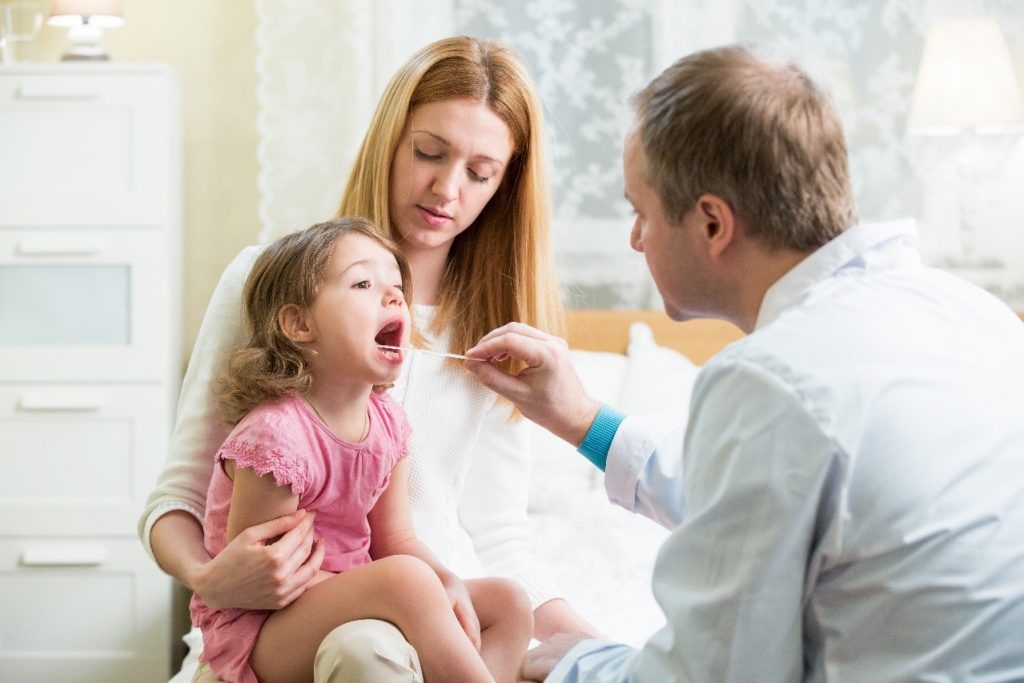Common reasons you can call an after-hours doctor for your child
Knowing what to do when your child becomes sick can be difficult for parents, particularly when it happens when the local GP is closed. While some families tend to rush to a hospital emergency department, there are after-hours doctor services available for those who need urgent care for non-life-threatening conditions.
As a home doctor service, we treat everything from colds and coughs to infections and injuries. So, here are five of the most common reasons parents call after-hours doctors to treat their kids.
-
School sores (impetigo)
Possibly the most common skin infection among children is school sores. These are usually identified by noticeably red or itchy skin, a scab which dries and falls off, blister formations or blisters which weep a yellow sticky fluid.
If your child is diagnosed with school sores, ensure they are kept away from school or childcare as the infection is highly contagious. Depending on the severity, treatment for school sores can include antibiotic creams and ointments which need to be applied regularly until they’re completely healed.
-
Sprains
Another reason many parents call for a home doctor is sprains and strains. It’s important for parents to seek medical attention for their child if pain persists.
A few indicators you should consult with a doctor is when your child is:
- Unable to move the affected area
- Unable to walk more than a few steps without pain
- Experiencing numbness near the affected area.
If necessary, a doctor can prescribe anti-inflammatory medication, rest, ice or heat and pain-relief.
-
Gastro
After-hours doctors will regularly be called for cases of gastro, for both children and adults. Although most cases of gastro last one to two days, it’s important to seek medical attention as the main complication (particularly for babies and young children) is dehydration which can quickly lead to severe illness.
Concerned parents should take note if their child shows signs of vomiting, diarrhoea, fever, lack of appetite, stomach pains and nausea. If so, seek the correct medical attention. While a home doctor can provide treatment including oral rehydration drinks, severe cases may require admission to hospital.
-
Croup
Parents can identify croup by its distinctive barking cough which can make a harsh sound when the person breaths in. While mild cases of croup can be treated by parents at home, it’s important to keep an eye on your child in case their symptoms worsen.
If concerned, consult with a doctor for further advice, however parents should seek immediate medical attention if their child’s lips go blue or they’re having difficulty breathing.
-
Hives
As hives can be an allergic reaction triggered by anything from foods and medicines to insect bites, they’re quite common among children. Doctors will usually diagnose hives simply from their appearance and will advise correct treatment, which may include antihistamines.
Severe attacks of hives may require urgent medical attention, so parents are advised to keep a close eye on the symptoms their child may be experiencing.
If you’re uncertain whether to call a home doctor or visit the emergency department after hours, phone 13 HEALTH for health advice.





